
Filter News
Area of Research
- Biology and Environment (52)
- Clean Energy (62)
- Climate and Environmental Systems (1)
- Computational Engineering (1)
- Computer Science (1)
- Fusion and Fission (7)
- Isotope Development and Production (1)
- Isotopes (15)
- Materials (57)
- Materials Characterization (1)
- Materials for Computing (10)
- Materials Under Extremes (1)
- National Security (4)
- Neutron Science (24)
- Nuclear Science and Technology (3)
- Supercomputing (21)
News Type
News Topics
- (-) Biomedical (25)
- (-) Clean Water (7)
- (-) Coronavirus (23)
- (-) Environment (73)
- (-) Isotopes (27)
- (-) Materials Science (62)
- (-) Polymers (17)
- (-) Transportation (37)
- 3-D Printing/Advanced Manufacturing (56)
- Advanced Reactors (12)
- Artificial Intelligence (33)
- Big Data (14)
- Bioenergy (41)
- Biology (43)
- Biotechnology (11)
- Buildings (22)
- Chemical Sciences (38)
- Climate Change (37)
- Composites (11)
- Computer Science (70)
- Critical Materials (12)
- Cybersecurity (23)
- Decarbonization (34)
- Education (3)
- Element Discovery (1)
- Energy Storage (55)
- Exascale Computing (12)
- Fossil Energy (1)
- Frontier (17)
- Fusion (21)
- Grid (22)
- High-Performance Computing (35)
- Hydropower (2)
- ITER (3)
- Machine Learning (18)
- Materials (66)
- Mathematics (4)
- Mercury (6)
- Microelectronics (1)
- Microscopy (25)
- Molten Salt (2)
- Nanotechnology (32)
- National Security (33)
- Net Zero (5)
- Neutron Science (57)
- Nuclear Energy (40)
- Partnerships (27)
- Physics (40)
- Quantum Computing (10)
- Quantum Science (28)
- Renewable Energy (1)
- Security (17)
- Simulation (12)
- Space Exploration (3)
- Statistics (2)
- Summit (22)
- Sustainable Energy (44)
- Transformational Challenge Reactor (4)
Media Contacts
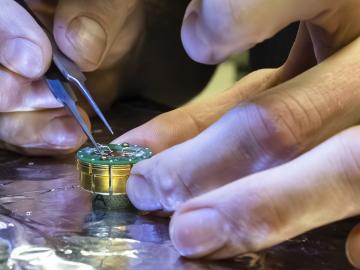
Quantum computers process information using quantum bits, or qubits, based on fragile, short-lived quantum mechanical states. To make qubits robust and tailor them for applications, researchers from the Department of Energy’s Oak Ridge National Laboratory sought to create a new material system.
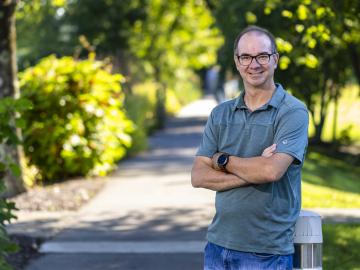
Bob Bolton may have moved to a southerly latitude at ORNL, but he is still stewarding scientific exploration in the Arctic, along with a project that helps amplify the voices of Alaskans who reside in a landscape on the front lines of climate change.

Madhavi Martin brings a physicist’s tools and perspective to biological and environmental research at the Department of Energy’s Oak Ridge National Laboratory, supporting advances in bioenergy, soil carbon storage and environmental monitoring, and even helping solve a murder mystery.
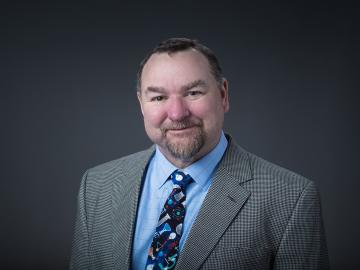
It was reading about current nuclear discoveries in textbooks that first made Ken Engle want to work at a national lab. It was seeing the real-world impact of the isotopes produced at ORNL
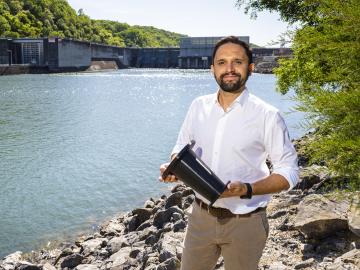
Mirko Musa spent his childhood zigzagging his bike along the Po River. The Po, Italy’s longest river, cuts through a lush valley of grain and vegetable fields, which look like a green and gold ocean spreading out from the river’s banks.
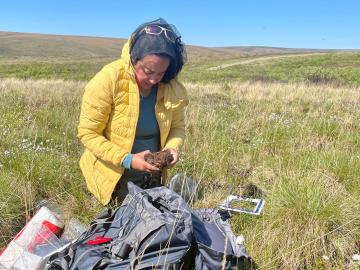
Wildfires are an ancient force shaping the environment, but they have grown in frequency, range and intensity in response to a changing climate. At ORNL, scientists are working on several fronts to better understand and predict these events and what they mean for the carbon cycle and biodiversity.
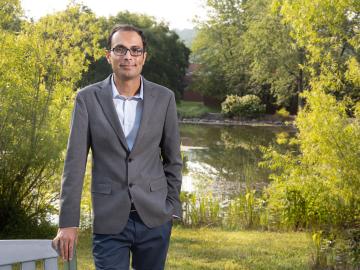
Growing up exploring the parklands of India where Rudyard Kipling drew inspiration for The Jungle Book left Saubhagya Rathore with a deep respect and curiosity about the natural world. He later turned that interest into a career in environmental science and engineering, and today he is working at ORNL to improve our understanding of watersheds for better climate prediction and resilience.
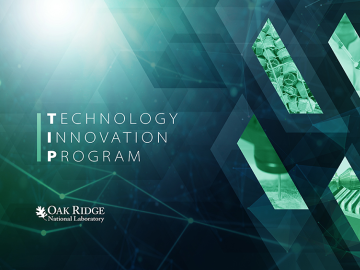
Scientist-inventors from ORNL will present seven new technologies during the Technology Innovation Showcase on Friday, July 14, from 8 a.m.–4 p.m. at the Joint Institute for Computational Sciences on ORNL’s campus.
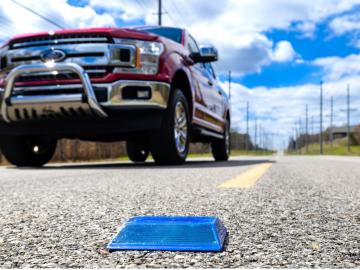
Working with Western Michigan University and other partners, ORNL engineers are placing low-powered sensors in the reflective raised pavement markers that are already used to help drivers identify lanes. Microchips inside the markers transmit information to passing cars about the road shape to help autonomous driving features function even when vehicle cameras or remote laser sensing, called LiDAR, are unreliable because of fog, snow, glare or other obstructions.
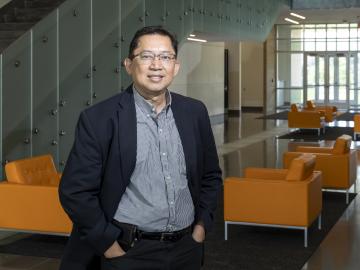
Rigoberto Advincula, a renowned scientist at ORNL and professor of Chemical and Biomolecular Engineering at the University of Tennessee, has won the Netzsch North American Thermal Analysis Society Fellows Award for 2023.


